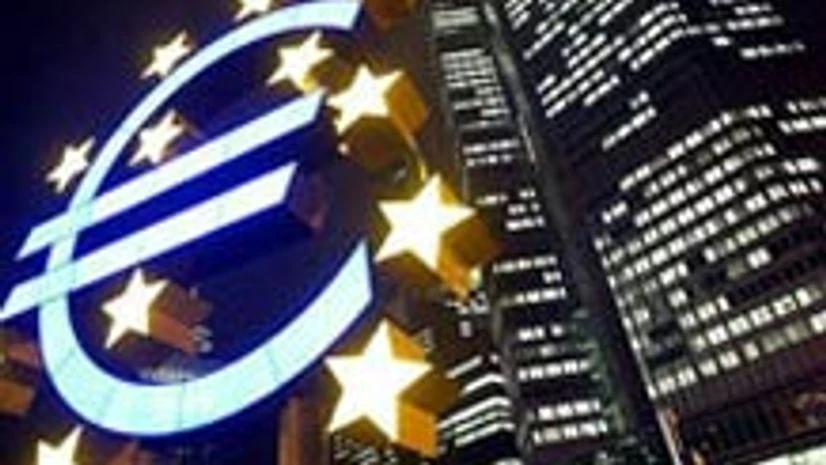The euro extended its slide on Wednesday, hitting its lowest level in a year against the dollar as expectation grew that the European Central Bank will act soon to counter low growth and inflation.
Government bond yields around the world remained under pressure and stock markets were buoyant on the prospect of further stimulus in the world's second largest economic bloc, although European bourses struggled to make any much headway following two days of strong gains.
Fueling the ECB easing speculation, Italian Economy Minister Pier Carlo Padoan said Italy must lower its growth forecast for this year and German consumer sentiment fell for the first time since early last year.
Steve Barrow, senior strategist at Standard Bank in London, said the ECB faced a tough task in getting the market to believe it will bring inflation back up towards its target of close to, but below 2%.
"It will probably require things like QE (quantitative easing), much lower bond yields - and a much lower euro," he said.
Euro zone inflation data due on Friday is likely to show a new low for this cycle of just 0.3% and add to the sense of urgency on policy.
More From This Section
ECB president Mario Draghi's call last week for more action on both the monetary and fiscal fronts has markets wagering that fresh steps could come as soon as next week when the central bank's governing council meets.
German Finance Minister Wolfgang Schaeuble on Wednesday, however, cooled some of the fevered speculation, saying Draghi's comments had been "overinterpreted".
The euro broke down to an 11-month low of $1.3152 in Asian trade on Wednesday before recovering some ground to $1.3185 in early European trade, slightly higher on the day.
The euro's earlier weakness helped lift the US dollar index to its highest level in 13 months at 82.698 before it too eased back. The greenback dipped against the yen below 104 yen, further back from Monday's 7-month peak at 104.49.
The prospect of yet more lashings of liquidity in Europe was taken as a positive for emerging markets and MSCI's broadest index of Asia-Pacific shares outside Japan gained 0.4% to its loftiest since January 2008.
The major European markets paused after recent gains, with the FTSEurofirst 300 index of leading shares, Germany's DAX and Britain's FTSE 100 all flat on the day at 1376 points, 9583 points and 6823 points, respectively.
The Italian and French markets were both down around 0.1%.
The three major US indices were called to open slightly higher, extending Wall Street's rally after the S&P 500 ended Tuesday above the 2,000 mark for the first time.
EURO YIELDS NOSEDIVE
In European bond markets German Bund futures came within one tick of the all-time contract high of 151.10, while 10-year bond yields fell one basis point to 0.937, within a whisker of Monday's record low 0.926%.
The rally on the periphery has been even larger. Spanish and Italian bond yields both hit new record lows for the third consecutive day, down seven and five basis points, respectively, at 2.12 and 2.38%.
Markets also kept a wary eye on developments in Ukraine after Russian President Vladimir Putin met his Ukrainian counterpart Petro Poroshenko for one-on-one talks.
Poroshenko said a "roadmap" would be prepared to agree to a ceasefire as soon as possible in east Ukraine, while Putin emphasised it was up to Kiev to work out conditions with pro-Russian separatist rebels.
In commodities, gold was hovering at $1,285 an ounce after failing to sustain a bounce to $1,290.80.
Oil prices clawed back some of their recent losses. Brent crude inched up 44 cents to $102.94 a barrel, while U.S. crude rose 26 cents to $94.12.

)
